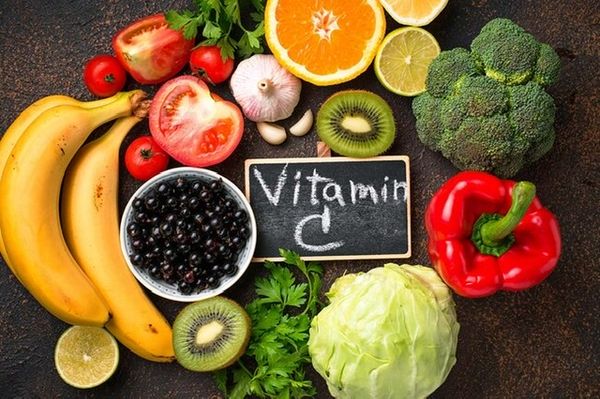Benefits of Vitamin C




Have you heard about the health benefits of vitamin C?
Vitamin C, or ascorbic acid, has long been believed to support immunity and offers other benefits too.
It is important to understand the sources of vitamin C. Fruits and vegetables like broccoli, strawberries, and guava have vitamin C. Vitamin C is one of the many nutrients found in a nutritious, well-balanced diet.
Vitamin C plays a crucial role in skin health, immune function, and more.
To help maintain skin health, make sure you consume enough vitamin C in your diet. As an antioxidant, vitamin C plays an important role in skin health. Antioxidants help fight free radicals to help maintain healthy skin at a cellular level. Vitamin C also helps your body create collagen. In one study on vitamin C and skin health, vitamin C was shown to support collagen synthesis. Collagen is a protein your body produces, which helps give your skin its firmness and elasticity. To incorporate vitamin C-rich foods into your diet, try foods like broccoli, strawberries, kale, kiwis, orange juice, and red peppers. The Recommended Dietary Allowance (RDA) for vitamin C is 90 mg/day for men and 75 mg/day for women.
Many people know that vitamin C plays a role in immune health. In fact, studies show that vitamin C helps support the cellular functions of both the innate and adaptive immune system. Vitamin C is a powerful antioxidant that helps keep your immune system up and running. Supporting a healthy immune system requires a variety of vitamins and nutrients—an essential one is vitamin C. Luckily, vitamin C is in a lot of common foods. To help ensure you get the daily recommended amount of vitamin C, continue to incorporate recipes with vitamin C-rich foods into the daily menu.
Did you know there was a link between Vitamin C and iron absorption? Iron is a mineral found in meat, seafood, and spinach and is essential for growth and development. It is an important component of hundreds of proteins and enzymes that support essential biological functions, such as oxygen transport, energy production, and DNA synthesis. Vitamin C increases the bioavailability of iron from certain foods by increasing intestinal absorption of non-heme iron. Essentially, if you want to get more of the iron from the foods you eat, add a vitamin C-rich food to your meal, whether it is a glass of freshly squeezed orange juice with your breakfast or some delicious red peppers in your homemade soup.